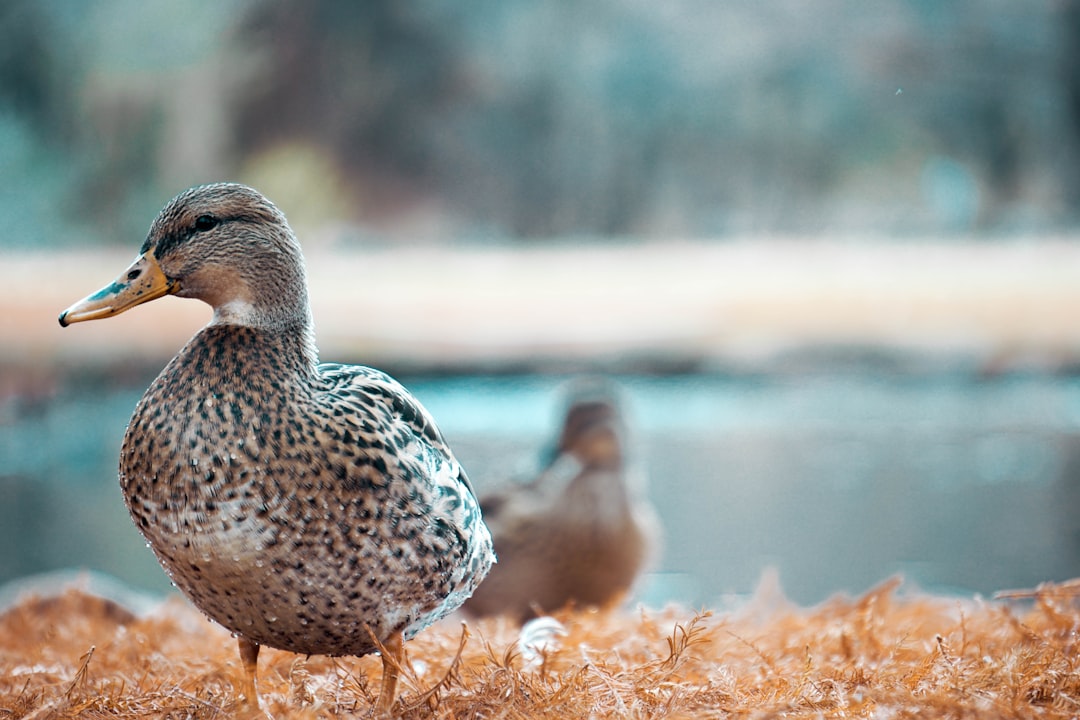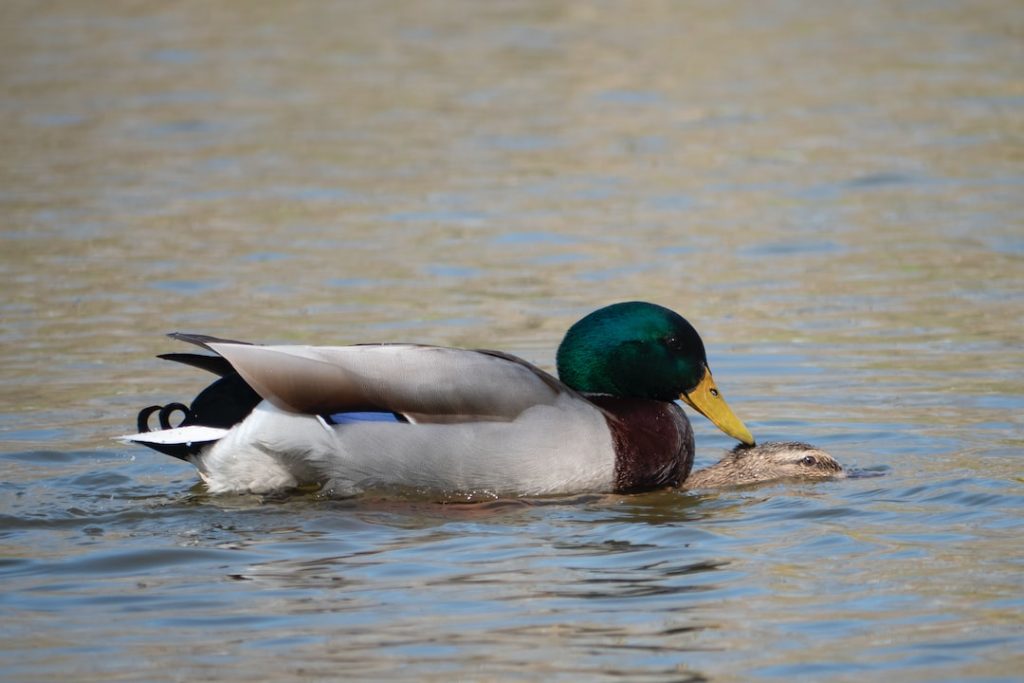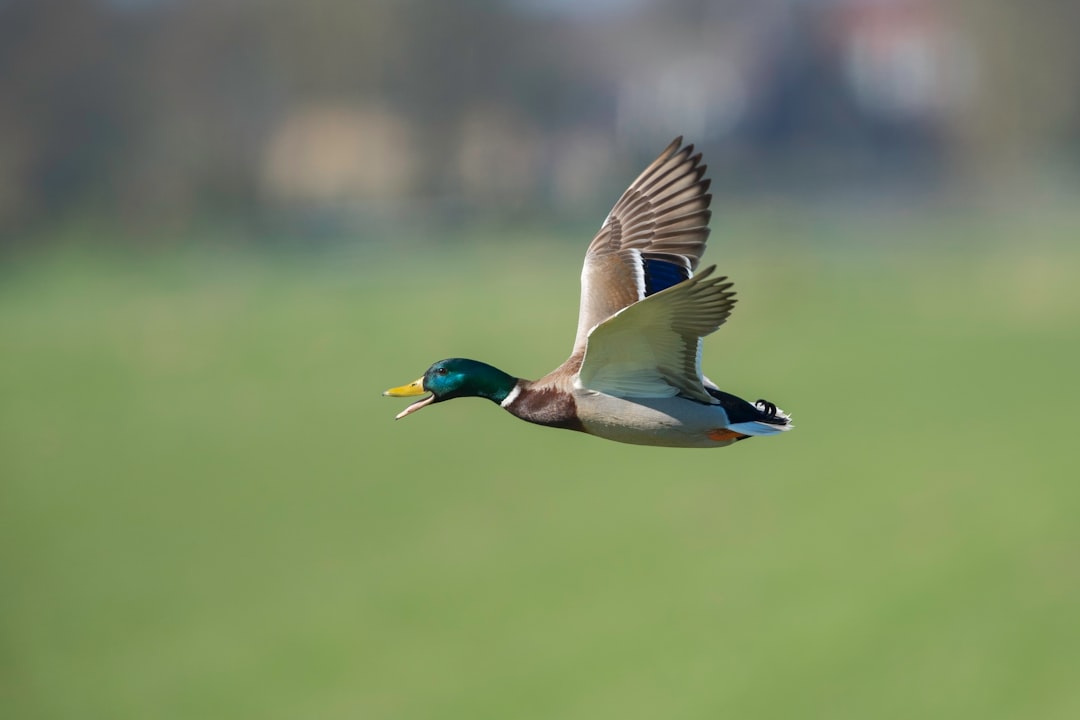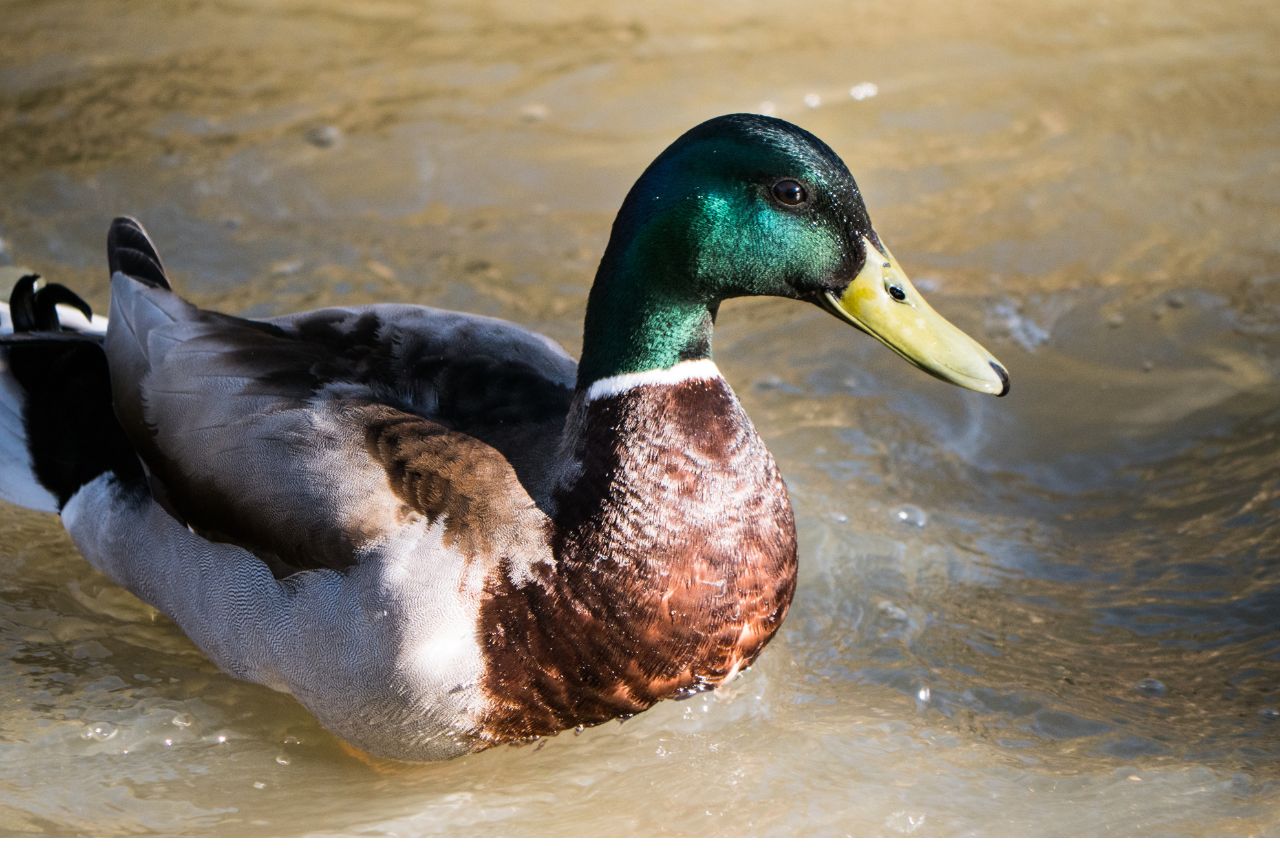Ducks are fascinating creatures that are commonly found in wetlands, ponds, and lakes. While they are known for their quacking, many people are surprised to learn that ducks can also hiss.
This may leave you wondering, Why Do Ducks Hiss? I will tell you that there are several reasons why ducks may hiss, and understanding these reasons can provide insight into their behavior and communication.
Ducks hiss for various reasons, including aggression, warning, and communication. When threatened or provoked, ducks may hiss to warn predators or other ducks to stay away.
They may also hiss as a display of dominance during territorial disputes. Additionally, ducks may hiss to communicate with their offspring or to express discomfort or fear.
In this article, we will explore the different reasons why ducks hiss and what it may mean for their interactions with other ducks and humans.
The hiss sound is produced by the expulsion of air from the duck’s beak, and it is often accompanied by other vocalizations and body language.
What Is Hissing In Ducks?
Hissing is a common behavior in ducks, but it should not be confused with their quacking, which serves a different purpose.
Hissing is often accompanied by other behaviors such as head bobbing, wing flapping or bill snapping.
These additional actions can help to clarify the message that the duck is trying to convey.
It’s important to note that hissing in ducks is not always negative and aggressive; it can also be used for communication purposes between mates or family members.
The Anatomy Of Duck Hissing
Hissing in ducks is produced by the expulsion of air from their beaks, which creates a distinct sound.
This sound is made possible by the unique anatomy of ducks, including their elongated trachea and specialized syrinx muscles.
These structures allow ducks to produce a variety of sounds, including hissing, quacking, and whistling.
What Does It Mean When Duck Hisses?

Ducks hiss for various reasons such as aggression, warning, communication, and even for bonding purposes.
Their unique anatomy allows them to produce a distinct sound that can be used to convey different messages to other ducks or predators in their environment.
Understanding why ducks hiss is essential in interpreting their behavior and social interactions with other members of their flock.
As fascinating creatures that are an essential part of our ecosystem, it’s important to appreciate and respect them by observing their natural behaviors from a distance.
Why Do Ducks Hiss?
There are certain reasons Reasons Why Ducks Hiss are described as under.
Reasons Why Ducks Hiss
There are certain points showing hissing behavior of ducks and reasons:
1. Communication
Ducks may hiss to communicate with their mates or offspring. For example, a mother duck may use hissing sounds to call her young ones to food or water.
Similarly, male ducks may use hissing to court females during the breeding season. These vocalizations are important for establishing and maintaining social bonds within the flock.
2. As A Warning Shot
Another reason why ducks hiss is to warn predators or other ducks to stay away. When threatened or provoked, ducks may produce a loud and aggressive hiss sound as a way to deter potential attackers.
This behavior is especially common during the breeding season when male ducks are protecting their mates and offspring.
3. Display of Dominance
Ducks may also hiss as a display of dominance during territorial disputes.
When two male ducks compete for the same mating partner or territory, they may engage in aggressive behaviors such as hissing, flapping their wings, and snapping their bills.
The winner of the dispute will establish dominance and claim the territory or mate.
4. Defense Mechanism
Hissing can also serve as a defense mechanism for ducks. When they feel uncomfortable or threatened by humans or other animals, they may hiss to express their discomfort and discourage further interaction.
It’s important to note that while ducks may seem harmless, they can become aggressive if they feel threatened, especially during breeding season when they are protecting their offspring.
As such, it’s important to observe ducks from a safe distance and avoid disturbing them.
5. In Pain
Ducks may also hiss when they are in pain. This can be a sign of injury or illness and should be taken seriously.
If you notice a duck hissing excessively or displaying other signs of distress, it’s important to seek out professional help from a veterinarian or wildlife rehabilitator.
6. Stressed Out
Ducks may hiss when they are stressed out. Stress can be caused by a variety of factors such as overcrowding, lack of food or water, or exposure to loud noises and other environmental stressors.
If you notice a group of ducks hissing excessively or displaying other signs of distress, it’s important to address the underlying cause and provide them with a safe and comfortable environment.
7. Mating Behavior

Male ducks may hiss as a way to court potential mates during the breeding season.
This vocalization can be part of their elaborate mating display, which includes various behaviors such as head-bobbing, tail wagging, and wing flapping.
Female ducks may also use hissing as a signal of acceptance or rejection towards male suitors.
8. Ducks Hiss When You Are Bugging Them
Ducks may hiss when they feel bothered or annoyed. This can be caused by human interaction, loud noises, or other environmental factors that disrupt their daily routines.
It’s important to respect the natural habitat of these creatures and avoid disturbing them as much as possible.
How Hissing Is Different From Other Sounds Ducks Make?
Ducks make various sounds, including quacks, grunts, coos, and whistles. However, hissing is a unique sound that distinguishes itself from other duck vocalizations.
Unlike quacking or cooing, which are used for general communication and socialization, hissing is primarily used as a warning or defensive mechanism against potential threats.
Additionally, hissing is typically accompanied by other aggressive behaviors such as flapping wings and snapping bills.
What Causes My Ducks To Hiss?
There are several reasons why your ducks may be hissing. It could be a sign of stress, illness, discomfort, or fear. If you notice your ducks hissing excessively, try to identify the underlying cause and address it accordingly.
For example, if they seem stressed out due to overcrowding or lack of food and water, provide them with more space and ensure they have access to adequate resources.
If they appear ill or injured, seek out professional help from a veterinarian or wildlife rehabilitator immediately.
How To Respond To Hissing Ducks?

When encountering hissing ducks, it’s important to respect their space and avoid further interaction.
Hissing is a sign that the ducks feel threatened or uncomfortable, and attempting to approach them may escalate the situation.
It’s also important to keep in mind that hissing can be a sign of illness or injury, so if you notice excessive hissing or other signs of distress, seek out professional help as soon as possible.
Safety Precautions When Dealing With Hissing Ducks
When dealing with hissing ducks, it’s important to take safety precautions to avoid any potential harm.
Avoid making sudden movements or loud noises that can startle the ducks and cause them to become aggressive.
Keep in mind that during breeding season, male ducks can be especially protective of their mates and offspring and may attack if they feel threatened.
If you need to approach a group of hissing ducks, do so slowly and cautiously, while keeping a safe distance.
Tips For Avoiding Conflicts With Ducks
Here are some quick tips for avoiding conflicts with ducks:
- Give ducks their space. If you approach too closely, they may feel threatened and act defensively.
- Don’t feed ducks human food. It can be unhealthy for them and can also lead to aggressive behavior.
- Keep dogs on a leash near ducks. Dogs can be seen as a threat and may cause ducks to become aggressive.
- Avoid nesting areas. If you see ducks with ducklings, give them plenty of room to avoid disturbing them.
- Be aware of your surroundings. Don’t startle ducks by suddenly appearing around corners or making loud noises.
Wrap Up: Why Do Ducks Hiss?
Why Do Ducks Hiss? Hissing is a unique behavior displayed by ducks that serves as a warning or defensive mechanism against potential threats.
While hissing can be a natural behavior during mating season, it can also be a sign of stress, illness, discomfort, or fear in ducks.
It’s important to respect the space and natural habitat of these creatures to avoid conflicts and ensure their safety and well-being.
By understanding the reasons why ducks hiss and other vocalizations they make, we can better appreciate their behaviors and social interactions within their flock.
Remember to take necessary safety precautions when dealing with hissing ducks and seek professional help if necessary.
FAQs
Why Do Ducks Hiss?
Ducks hiss as a warning or defensive mechanism against potential threats.
Is Hissing a Natural Behavior in Ducks?
Yes, hissing can be a natural behavior in ducks, especially during mating season.
Can Hissing Be a Sign of Stress or Illness in Ducks?
Yes, excessive hissing can be a sign of stress, illness, discomfort, or fear in ducks.
How Should I Respond to Hissing Ducks?
It’s important to respect their space and avoid further interaction. Seek professional help if necessary.
How Can I Avoid Conflicts with Ducks?
Give ducks their space, avoid feeding them human food, keep dogs on a leash, and be aware of nesting areas.




